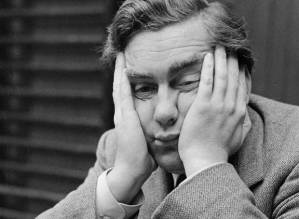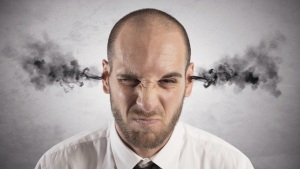 In Part 1 of this article, we pointed out that there is a difference between true hunger as opposed to cravings and emotional eating. In Part 2, we talk about with triggers for emotional eating and how to deal with each of them.
In Part 1 of this article, we pointed out that there is a difference between true hunger as opposed to cravings and emotional eating. In Part 2, we talk about with triggers for emotional eating and how to deal with each of them.
Emotional eating is most likely the main reasons for overeating. Here are examples of emotional eating triggers and some possible strategies to deal with them.
Anger
Unconscious tensing of muscles, especially in the face and neck, teeth grinding, your breathing rate increases dramatically, your face turns red and veins start to become visible due to an increase in blood pressure, face turning pale, sweating, feeling hot or cold, shaking in the hands, goose bumps, and an increased heart rate
The Solution:
Anger is an energizing emotion that causes most people to feel that they have to do something to let off steam. Some people yell and slam things around when they feel angry. This may release tension in the short run, but it can make those around the angry person fearful and wary. Sometimes anger “sneaks out” through sarcasm or offhand remarks. Some people try to dissipate anger by overeating.
Many people and especially women learn that showing anger is not acceptable. Anger isn’t “ladylike.” If you are a person who tries to hide or suppress your anger, you may have discovered that food and eating are a good way to “stuff” anger. Eating provides a distraction from that which has triggered your anger, and the rewarding aspects of eating serve to sedate angry feelings.
It is important to learn to handle your anger in a positive way. Play soothing music on the way home from work or listen to a Torah tape. Talk to your friend or spouse or whoever is causing you to feel wronged and try to get to the real stuff that is going on. Read a good book (maybe Dr. Pliskin’s book Anger-The Inner Teacher!) Whatever you do, don’t reach for fattening food. If you begin to identify anger as a trigger, then you can begin to deal with the situation in a positive way that doesn’t include food.
Anxiety
The Symptoms:
Hot and cold flushes, racing heart, tightening of the chest, snowballing worries, obsessive thinking and compulsive behavior.
The Solution:
First, take a deep breath! Forcing yourself to concentrate on your breathing, closing your eyes and breathing deeply for 10 minutes can go a long way towards relaxing you and help rid you of your anxious feelings. Breathing will help center you and give you perspective.
Secondly, identify what it is that is causing you anxiety and see what food cravings are associated with these feelings. Get plenty of exercise and a good night’s sleep.

Boredom
The Symptoms:
Boredom is a common feeling. Feeling unsatisfied by or uninterested in an activity causes it. Research suggests that boredom sometimes occurs when a person is feeling energetic but has nowhere to direct that energy. Boredom also occurs when a person has difficulty focusing on a task.
The Solution:
Create a diversion. Do something else, anything that gets your mind engaged and away from food. Exercise is great. Take a walk around the block. If you get out of the house, the chances that you will still want the food when you return are slim. If you can find something else to do for ten minutes, the craving should pass and you will be in control again. Drink a big glass of water, call a friend or even better, open a sefer and learn. Be responsible for engaging your mind.
Depression
The Symptoms:
You feel blue. You feel restless. You can’t sleep or you sleep too much. You can’t concentrate or find that previously easy tasks are now difficult. You feel hopeless and helpless. You can’t control your negative thoughts, no matter how much you try. You have lost your appetite or you can’t stop eating. You are much more irritable, short-tempered, or aggressive than usual.
You’re consuming more alcohol than normal or engaging in other reckless behavior. You have thoughts that life is not worth living (seek help immediately if this is the case)
The Solution:
Find someone to talk to instead of trying to eat your depression away Often, a good, empathetic friend is what you need. Exercise is a known antidepressant and you’ll feel better about yourself when you’ve burned off some of those calories you’ve been ingesting to ease your depression. Give yourself a break. You’ll feel much better and break the cycle of feeling blue, eating and feeling even bluer.
 Exhaustion
Exhaustion
The Symptoms:
You don’t sleep well at night. The dark circles under your eyes go all the way down to your chin and you can’t get out of bed in the morning. Does this sound like you?
The Solution:
Exercise and common sense. It feels as though the last thing in the world you want to do is exercise, but it really helps. It calms your mind and engages your muscles. It usually helps you get a better night’s sleep and that is critical. Don’t sleep more than an hour or you won’t be able to sleep that night, but if you can catch a few winks, you will feel better. Look at your schedule and rearrange as necessary.
In Part 3, we will continue to discuss emotional triggers and then talk about being in touch with real hunger. Being mindful and eating a well balanced diet as opposed to emotional eating will “add hours to their days, days to their years, and years to their lives.”


[…] out that there is a difference between true hunger as opposed to cravings and emotional eating. In Part 2, we talked about with triggers for emotional eating and how to deal with each of them which we now […]